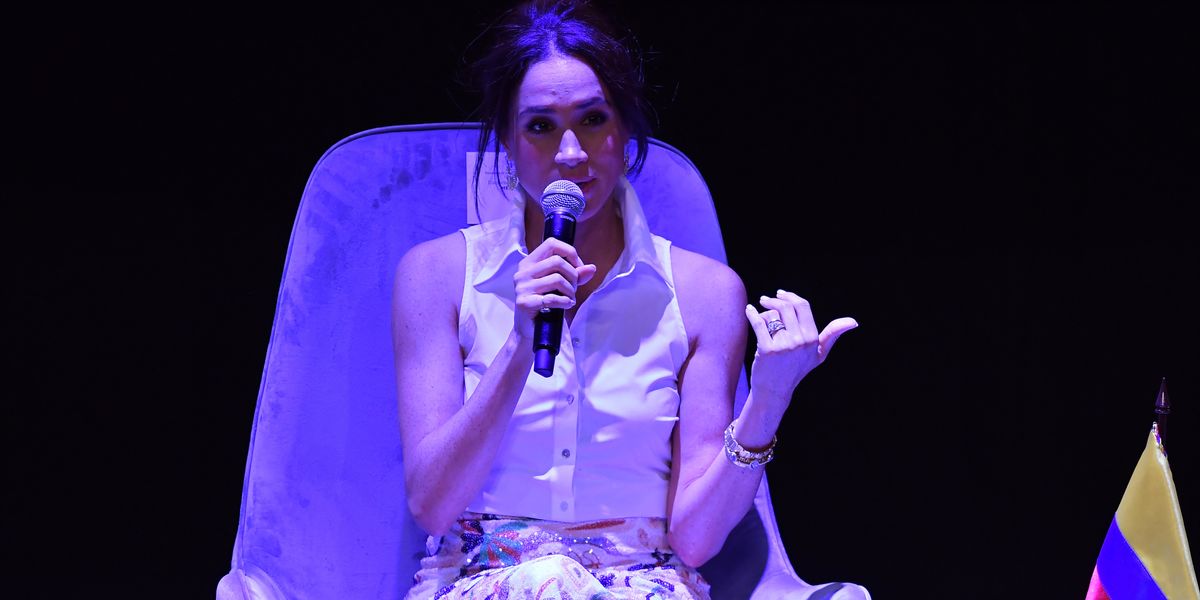Meghan Markle’s Claim of Being One of the "Most Bullied People" Sparks Controversy
In recent weeks, Meghan Markle’s assertion that she is one of the world’s "most bullied people" has ignited a firestorm of debate, particularly on platforms like GB News. During a visit to the Girls Inc. of Greater Santa Barbara, Markle shared her experiences with bullying, a topic that resonates deeply with many, especially young people. However, her comments have drawn sharp criticism from political commentators and media personalities, who argue that her perspective is both pretentious and disconnected from the realities faced by those who endure genuine bullying.
The Context of Meghan’s Statement
Meghan Markle’s remarks came during an event aimed at empowering young girls, where she spoke candidly about her own experiences with bullying. Larissa May, co-founder of an advocacy group working with Girls Inc., relayed Meghan’s sentiments in an interview with Vanity Fair, highlighting her claim of being "one of the most bullied people in the world." This statement, while intended to foster empathy and understanding, quickly became a focal point for criticism.
The Backlash on GB News
The backlash was swift and fierce, particularly on GB News, where commentators Chloe Dobbs and Liz Kershaw did not hold back in their critiques. Dobbs described Markle’s comments as "the most pathetic thing that has come out of her mouth," emphasizing the disconnect between her privileged lifestyle and the real struggles faced by many who experience bullying in more severe forms. She pointedly asked, “Tell this to kids who get beat up over and over again and are bullied by parents in abusive households,” underscoring the gravity of bullying that often goes unnoticed.
Kershaw echoed this sentiment, arguing that Markle’s claims of victimhood are unfounded, suggesting that much of the criticism directed at her is not bullying but rather a deserved response to her actions. This perspective raises questions about the nature of public scrutiny and the fine line between criticism and bullying, particularly for high-profile figures.
The Media’s Obsession with Meghan Markle
Adding another layer to the discussion, journalist Benjamin Butterworth noted the intense media scrutiny surrounding Meghan Markle. He acknowledged that while some of the criticism she faces can be aggressive and unjust, he also expressed concern over her choice to frame her experiences in a way that might elicit pity rather than empowerment. Butterworth argued that Markle, living a life of luxury that is unattainable for most, should focus on inspiring young people rather than portraying herself as a victim.
The Broader Implications of Her Advocacy Work
Meghan Markle’s visit to Girls Inc. was not an isolated incident; it followed the launch of The Parents Network, an initiative aimed at supporting parents whose children have suffered from online harms. This foundation has collaborated with organizations like the World Health Organization to combat violence against children, a cause that Harry and Meghan have passionately championed. Their recent trip to Colombia further highlighted their commitment to raising awareness about online bullying and its consequences.
Conclusion: A Divided Response
The controversy surrounding Meghan Markle’s claim of being one of the world’s most bullied individuals reflects a broader societal debate about the nature of bullying, privilege, and public perception. While her advocacy work is commendable and necessary, the backlash she faces raises important questions about how we define bullying and the responsibilities of public figures in discussing their experiences. As the discourse continues, it is clear that Meghan’s journey, both as a duchess and an advocate, will remain a topic of heated discussion, revealing the complexities of celebrity culture and the impact of personal narratives in the public sphere.
